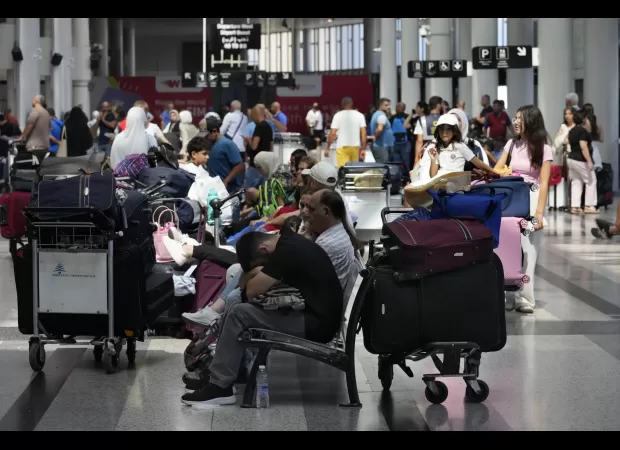People frantically flee to airport due to concerns of an immediate, full-scale war in Lebanon.
British nationals are being advised to immediately evacuate from their current location.

British nationals are being advised to immediately evacuate from their current location.


